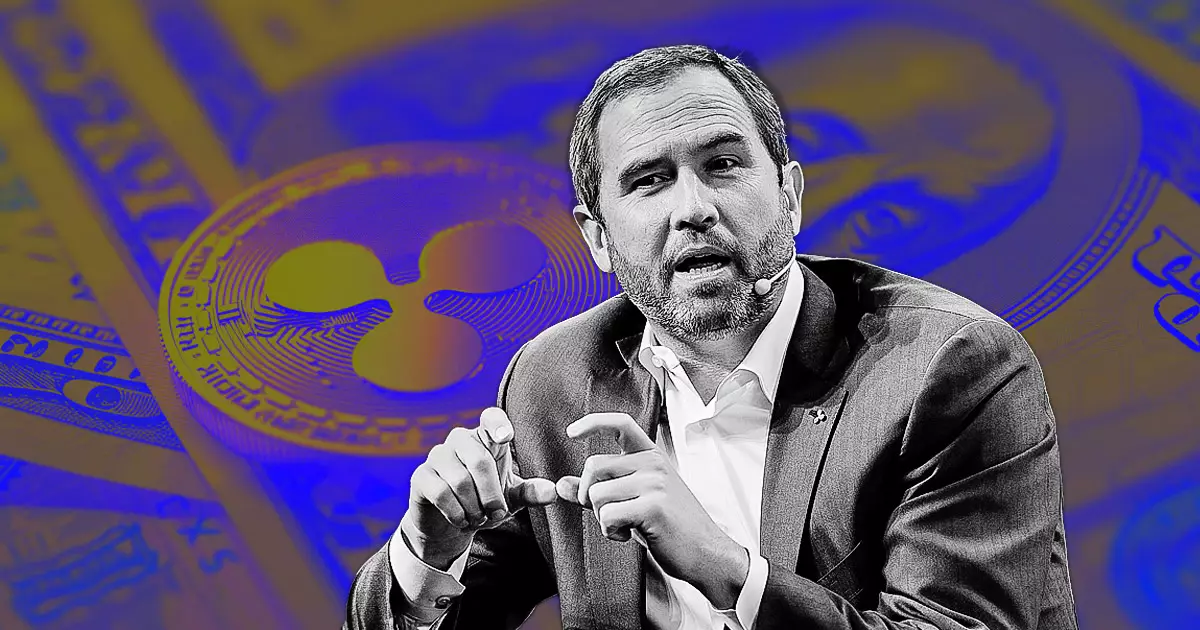The recent announcement by the Securities and Exchange Commission (SEC) to appeal a federal court ruling adds yet another chapter to the complex and drawn-out saga involving Ripple Labs and its cryptocurrency, XRP. The appeal, formally lodged with the Second Circuit Court of Appeals on October 2, 2023, signifies the regulatory body’s intention to challenge the conclusions reached in a critical August ruling that offered a nuanced outcome for both the SEC and Ripple. Unlike many typical legal cases, this one is closely watched by the cryptocurrency community, raising broader questions about regulatory approaches toward digital assets.
The SEC initiated its litigation against Ripple in December 2020, alleging that the company had executed an unregistered securities offering worth a staggering $1.3 billion through its XRP sales. However, the August ruling revealed a mixed bag of outcomes. While instances of XRP’s programmatic sales—those sold through digital exchanges to retail investors—were deemed compliant with securities laws, Ripple’s direct sales to institutional buyers were ruled as unregistered securities, incurring a $125 million penalty for the company. This penalty, notably lower than the SEC’s initial claim of $2 billion, was perceived by Ripple as a tactical win, contributing to their belief that the tides of the legal battle are shifting in favor of broader acceptance and clarity for the cryptocurrency sector.
In light of this latest development, Ripple’s CEO Brad Garlinghouse and Chief Legal Officer Stuart Alderoty expressed their dismay over the SEC’s decision to appeal. Garlinghouse articulated his frustration, criticizing the agency for prolonging a case that he asserted has already addressed key issues favorably for Ripple. He emphasized that the core question of XRP’s classification as a non-security remains settled law, irrespective of the SEC’s relentless legal maneuvers.
The executives’ sentiments reflect a broader concern about the implications of the SEC’s appeal. The regulatory body, under Chair Gary Gensler, is seen as engaging in a form of ‘litigation warfare’ against the broader cryptocurrency landscape. Garlinghouse highlighted the lack of accountability the SEC faces in its ongoing battle, hinting at a troubling precedent for future regulatory efforts. This view resonates with many in the cryptocurrency community, fostering sentiments of distrust toward governmental institutions that seem to hinder technological progress rather than support it.
Unsurprisingly, the news of the SEC’s appeal sent ripples across the XRP market, leading to a notable decrease in the value of the cryptocurrency—dropping approximately 9% within a day to just above $0.54. As of October 3, 2024, XRP ranks as the seventh-largest cryptocurrency by market capitalization, holding steady around $30.88 billion, with a trading volume of $2.54 billion in the last 24 hours. Such fluctuations indicate investors’ heightened sensitivity to regulatory news and its potential impact on the market.
While the current landscape may look daunting for Ripple, there lies a silver lining: the aspects of the August ruling that were favorable to Ripple may set significant precedents for regulatory practices in the realm of digital currencies. If Ripple successfully navigates the implications of the SEC’s appeal, the ruling could serve as a framework for future cases involving cryptocurrencies and financial regulations.
In a broader context, the SEC’s actions may be indicative of a regulatory strategy that lacks clarity and is mired in conflict, potentially stalling the growth of the cryptocurrency ecosystem. As Ripple contemplates the possibility of a cross-appeal, the outcome of this ongoing saga will likely hold implications not just for Ripple and XRP but for the entire digital asset landscape in the United States.
This case raises fundamental questions about how regulatory bodies interpret and apply laws to emerging technologies. If the SEC continues its appeal, it may further entrench perceptions of the agency as an adversarial entity against technology innovation rather than an enabler. The ruling and the subsequent appeal extend beyond Ripple, reflecting broader sentiments within the cryptocurrency community regarding regulatory overreach and the need for clear guidelines.
Ultimately, as the SEC’s legal battle unfolds, it continues to confront the societal and technological changes brought forth by cryptocurrencies. Ripple’s case is emblematic of the tension between innovation and regulation—an ongoing discourse that will shape the future of digital finance. The cryptocurrency community watches closely, as the outcomes of these legal disputes will lay the groundwork for the operational framework within which digital currencies will exist.



Leave a Reply